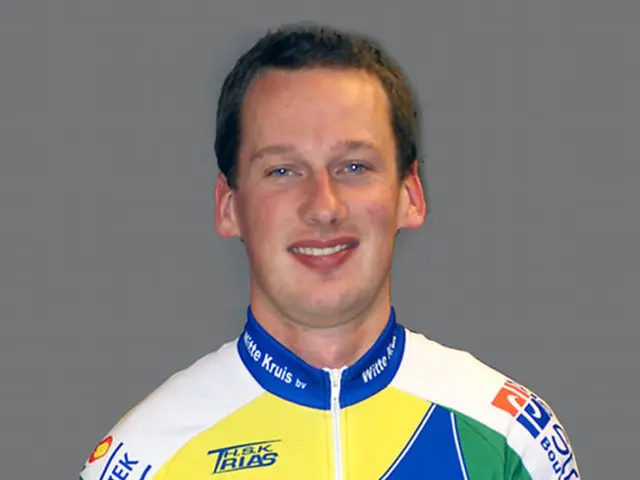Contending lottery winner's jackpot split by supposed "hero", attorney calls for the initial winner to pay out the entire jackpot to the second lottery player.
Unfair LottoJackpot Scoff: A Client's Clash with Lottohelden
By Timm Schaffner, Edited by Angela Burke, Published on: 03.03.2025. Updated on: 29.04.2025.
German lawyer, Jobst Ehrentraut, has stirred up a storm over the weekend, casting light on Lottohelden's shady business practices. A client of Ehrentraut's won the jackpot in Austria's '6 aus 45' lottery on 15.12.2024, netting a whopping 1.2 million euros. However, Lottohelden forked over only half the winnings, leaving her with a measly 600,000 euros.
Sketchy Terms and Conditions Slash Jackpots
According to Ehrentraut, the client expected the full jackpot due to being the sole winner. But thanks to Lottohelden's sneaky "1-rule" hidden in their terms and conditions, they added another winner to the prize class—halving the payout ratio to a paltry 50 percent.
In Ehrentraut's view, this is a shady move that flouts German law (§ 307 BGB). He considers it highly surprising and questionable for players to have their winnings artificially reduced this way.
Lottohelden's CEO Hits Back with Hot Air
Magnus von Zitzewitz, Lottohelden's CEO, fired back at Ehrentraut's claims on LinkedIn, accusing him of lacking critical details. He insists that winnings from secondary lotteries are responsive to the primary lottery's results. Since the primary lottery had a jackpot winner on 15.12.2024, the player would have won half the jackpot had they participated directly, von Zitzewitz contends.
Betting on Secondary Lotteries Remains Risky Business
Participating in secondary lotteries is apparently still seen as an illegal form of gambling in Germany. The consumer center regularly cautions against such risky gambling ventures. Most operators argue they can legally operate in Germany due to the EU's freedom of services. Court cases are still ongoing to clarify the legality of these operations.
As the law stands now, players are typically protected in court rulings. In fact, players have often been able to keep their winnings and avoid being fined for participating in illegal gambling activities.
Lottohelden Prepares for Legal Market Entry as Lotto Broker
von Zitzewitz also mentioned that Lottohelden is currently prepping for its market launch as a lotto broker. He plans to serve as the CEO of this independent division which operates apart from the group offering secondary lotteries.
According to its license, Lottohelden functions under the Lottoland Deutschland GmbH, which is authorized for commercial gaming mediation by the Joint Gaming Authority of the States (GGL). However, its new business model thus far involves simply mediating players directly to the primary lotteries, rather than hosting secondary lotteries.
The legal dispute between Ehrentraut's client and Lottohelden remains unresolved, and it's uncertain whether Lottohelden's dubious "1-rule" is a lawful tactic. Magnus von Zitzewitz has yet to address Ehrentraut's concerns that a player in the jackpot prize class can be arbitrarily added, further clouding the situation.
- Despite Ehrentraut's claims that Lottohelden's "1-rule" flouts German law, Lottohelden's CEO, Magnus von Zitzewitz, defends the tactic, stating that secondary lottery winnings are responsive to the primary lottery's results.
- The ratio of winnings in the secondary lottery, as dictated by Lottohelden's terms and conditions, is controversial, with Ehrentraut asserting it to be low and unjust, particularly when a player is the sole winner.
- In the financial industry, the business of casino-and-gambling, including lotteries, is not entirely clear-cut, with the legality of secondary lotteries still a matter of debate in Germany.
- Lottohelden's CEO, Magnus von Zitzewitz, has expressed intentions for Lottohelden to enter the legal market as a lotto broker, with the intention of serving as the CEO of this independent division.
- Other players in the casino-and-gambling industry, like Lottohelden, are also navigating the legal landscape, and the ratio of unpunished claims in this industry may reflect the complexity and uncertainty of the regulations governing these business practices.








